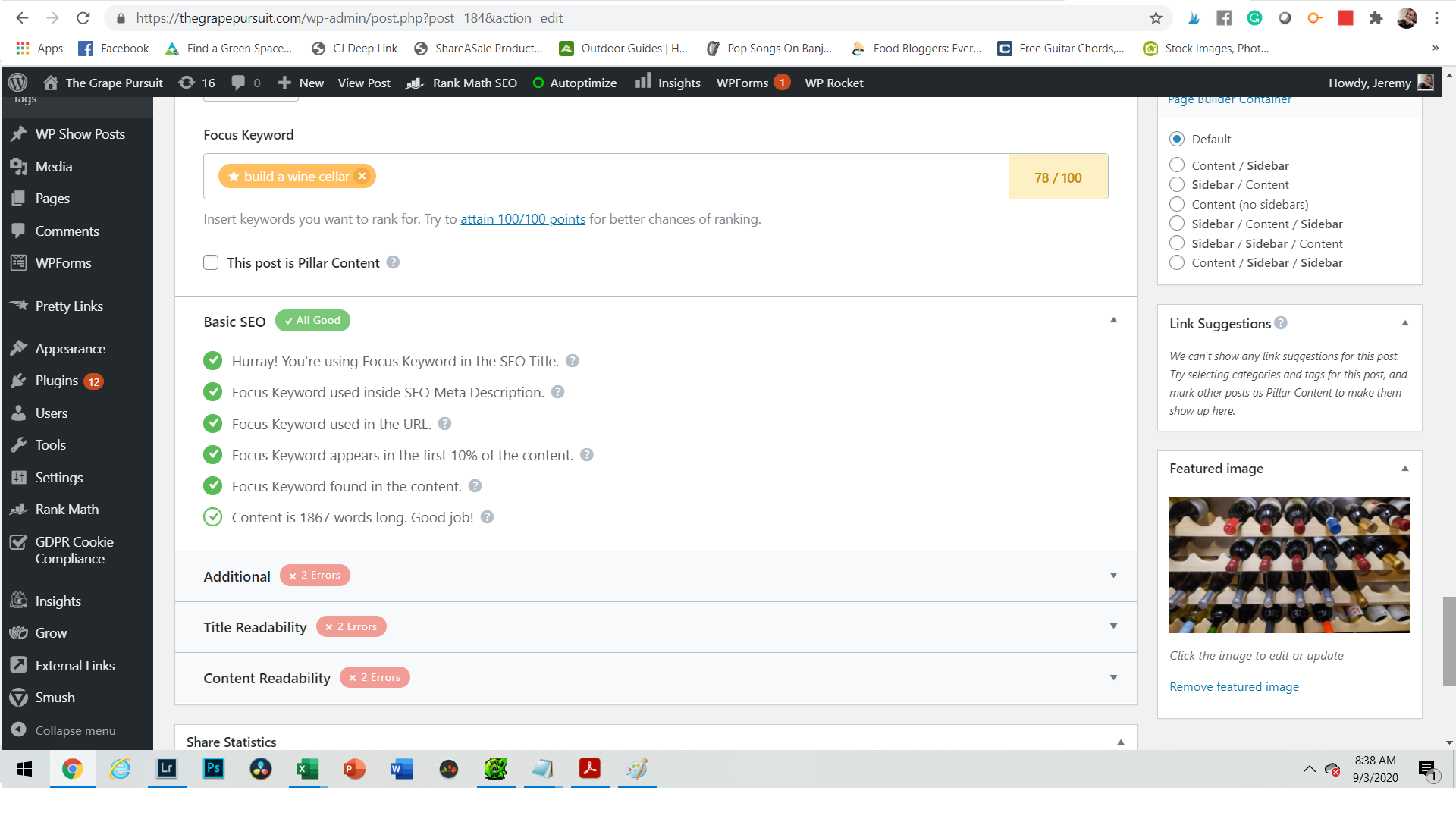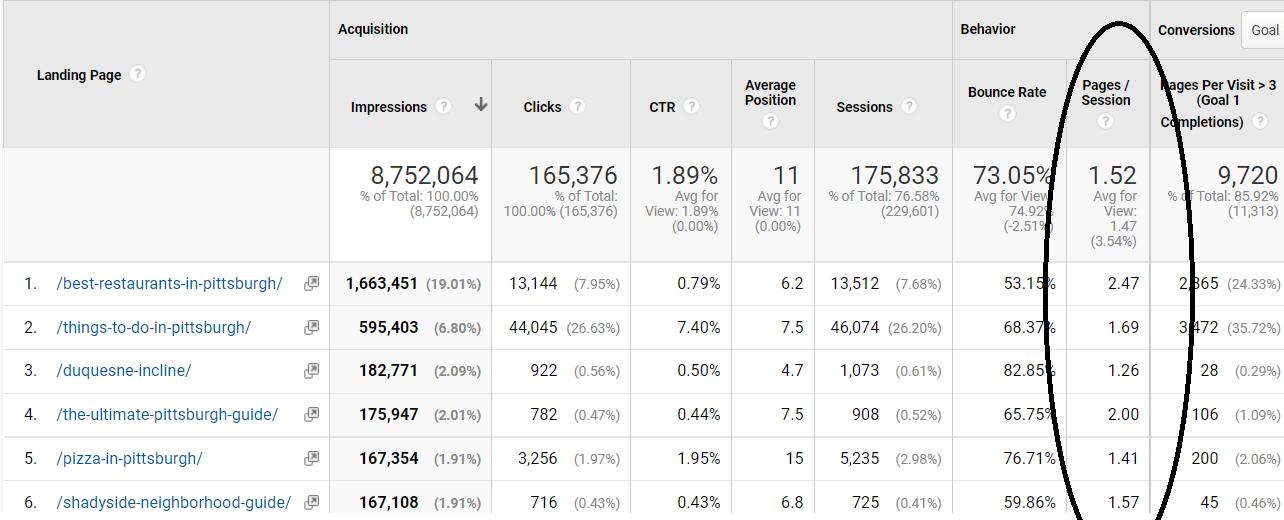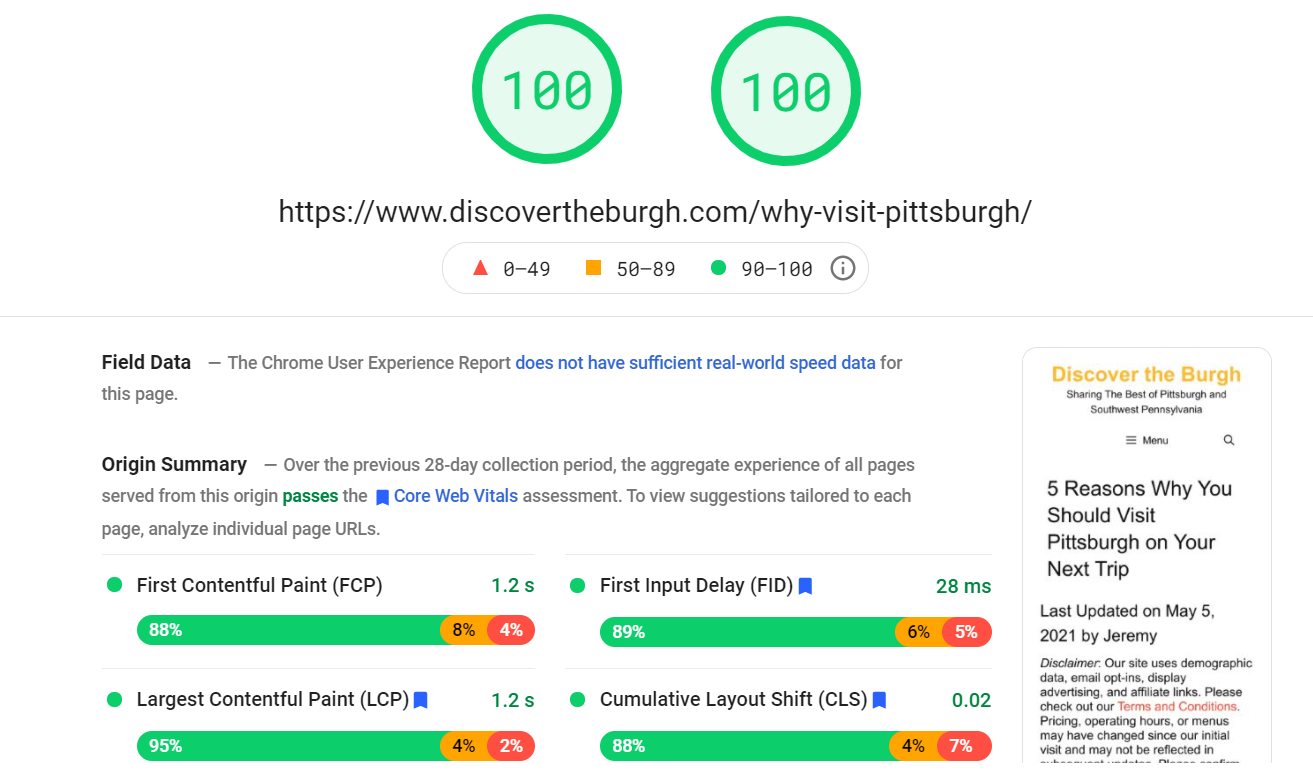Published by Jeremy. Last Updated on December 20, 2022.
Disclaimer: This Week in Blogging uses demographic data, email opt-ins, and affiliate links to operate this site. Please review our Terms and Conditions and Privacy Policy.
In a recent post, we discussed when bloggers should use AI and, perhaps more importantly, when they should not.
This was a fun piece for us to write about because the use of AI in blogging is a grey area at best. Some love it, some hate it, and some are in the middle.
But in writing this particular article, we thought we'd have a little fun with it and flip the script a bit. To put it simply, we thought why not make AI write the article. We did this briefly in the original post, with a 100 word segment used as an example, but in this one we wanted to go a bit more robust.
So we ran off to ChatGPT and put in a simple prompt: “Write a 1,500-word article about why bloggers should AND shouldn't use AI”. The following is the final product of the prompt.
Please note: This was the only direction we gave ChatGPT. The below article has not been edited in any way. We will provide our commentary at the end and note when our own thoughts resume. The featured image is a stock photo of our own selection.
“Artificial intelligence (AI) has become increasingly popular in recent years, and many bloggers have started to explore the possibilities of using AI in their content creation process. While AI can certainly be a useful tool for bloggers, it's important to consider both the potential benefits and potential drawbacks of using AI in your blogging. In this article, we'll explore the situations in which bloggers should and shouldn't use AI in their content creation, as well as some of the potential consequences of using AI in the world of blogging.
First, let's start by discussing some of the situations in which bloggers might consider using AI. One of the main benefits of AI is that it can save time and effort by automating certain tasks. For example, if you run a blog that involves a lot of data analysis or research, AI tools like natural language processing (NLP) can help you sift through and organize large amounts of information quickly and efficiently. Additionally, AI can be used to generate content or ideas for blog posts, which can be particularly useful for bloggers who struggle with writer's block or who want to quickly generate a list of potential topics to write about.
Another potential benefit of using AI in your blog is that it can help you reach a wider audience. Many AI tools are able to analyze data from social media platforms and other sources to identify trends and patterns that can help you tailor your content to the interests and needs of your readers. For example, you might use AI to identify the most popular keywords and phrases related to your topic, or to identify the most popular times to post your content.
However, it's important to keep in mind that there are also situations in which bloggers shouldn't use AI. One of the main drawbacks of using AI is that it can sometimes produce results that are inaccurate or biased. For example, if you use an AI tool to generate content, it's possible that the tool could produce content that is misleading or factually incorrect. Additionally, if you use AI to analyze data, it's important to be aware that the results may be influenced by the biases of the data sources or the algorithms used to process the data.
Another potential issue with using AI in your blog is that it can be difficult to understand how the AI is making its decisions. This can be a problem if you're using AI to generate content or ideas, as you may not be able to fully understand why the AI is suggesting certain topics or approaches. Additionally, if you're using AI to analyze data, you may not have a clear understanding of how the AI is processing and interpreting the data, which can make it difficult to trust the results.
Finally, it's important to consider the potential consequences of using AI in your blog. While AI can certainly be a useful tool, it's important to think carefully about the potential impact on your readers and the larger community. For example, if you use AI to generate content or ideas, you may be taking away opportunities for human writers and researchers to contribute to the conversation. Additionally, if you use AI to analyze data, you may be contributing to the growing problem of data privacy and security, as AI tools often require access to large amounts of personal data in order to function.
In conclusion, while AI can be a useful tool for bloggers, it's important to carefully consider the potential benefits and drawbacks of using AI in your content creation process. It's important to consider whether AI is the right fit for your blog, and to be aware of the potential consequences of using AI, both for yourself and for your readers.”
End AI content.
TWIB Response to AI Writing About AI
Okay, we're back, and wow do we have some opinions.
Up first, we have to admit that this AI-based article is, from a content perspective, actually not bad. It answered our prompt well and gave some very insightful pros and cons regarding why bloggers should and shouldn't use AI in their business.
In fact, the cons section of this one brought up even more ideas that we hadn't considered in our original piece, particularly around how AI can harvest data which becomes a privacy and security issue, too. Way to self-critique, AI! Had I used this solely to get ideas for an article, I would have had a lot to run with.
Would I have published this as written and happily put my name on it? 100% no. But it did give me several things to consider if I were writing this article from scratch all the same.
Perhaps the biggest issue we have with this AI-generated product is that it is simply bad copy. Yes, its content may be factually accurate, but it feels like shallow content bought by a copywriter who spins articles for $5 a pop. The main topics are repeated, again and again, often to the point of being self-referencing, it is not pleasurable to read, and the article at large does not inspire confidence that the author actually knows what they're talking about from any personal experience.
In a way, this makes a lot of sense. The article that ChatGPT produced reads like thin content you see everywhere on the internet. But since AI just uses machine learning based on everything on the internet, the style of its output makes a lot of sense. The expression “garbage in, garbage out” very much applies here.
But will AI get better? Absolutely. I see no reason why AI cannot become more intelligent to the point where it can also start to parse reputable sources only. Higher quality in will result in higher quality out. In fact, this is not much different than what the teams at Google are attempting with trying to make content quality a ranking metric beyond simply keyword usage and backlinks. (I won't say they're successful at it right now, but they are trying, and that is the point.)
Will this happen anytime soon? I'm not so sure. While you can be certain that machine learning is going to make AI more and more powerful as the years go by, as of publication of this article there is simply one thing a machine cannot replicate: first-hand experience. So we, as bloggers, should breathe a sigh of relief- for the moment at least.
What do you think about the future of AI and blogging? Comment below to share!
Join This Week in Blogging Today
Join This Week in Blogging to receive our newsletter with blogging news, expert tips and advice, product reviews, giveaways, and more. New editions each Tuesday!
Can't wait til Tuesday? Check out our Latest Edition here!
Upgrade Your Blog to Improve Performance
Check out more of our favorite blogging products and services we use to run our sites at the previous link!
How to Build a Better Blog
Looking for advice on how to improve your blog? We've got a number of articles around site optimization, SEO, and more that you may find valuable. Check out some of the following!











